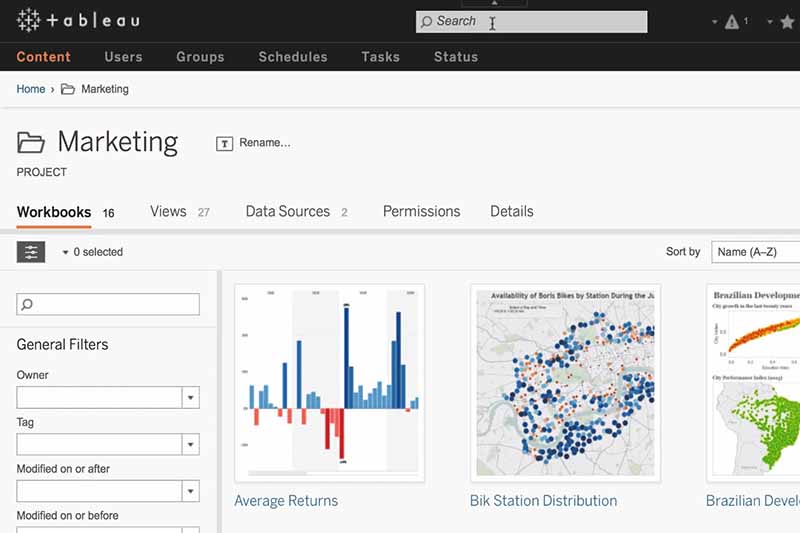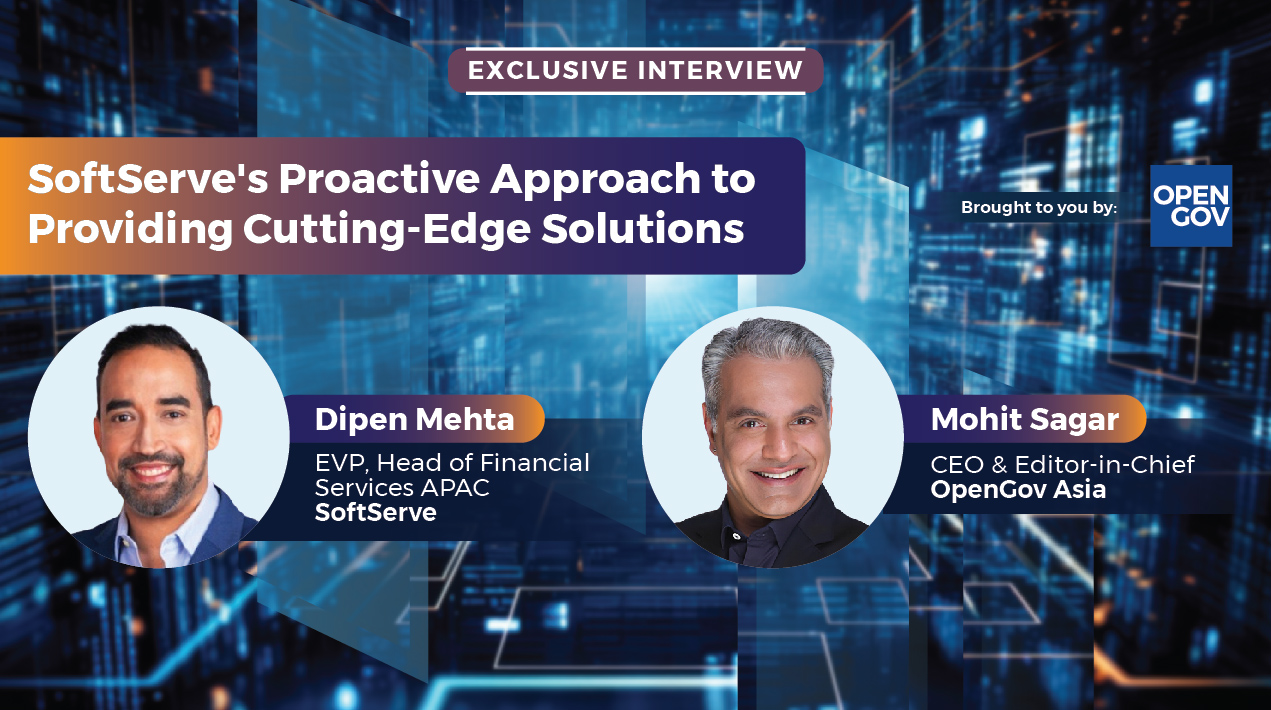
Data analytics plays a big role in our move towards building a Smart Nation, allowing organizations and citizens, in both public and private sectors, to make more intelligent decisions that are ultimately aimed at better returns. At Tableau, we term this “being data-informed.”
What does it truly mean to be data-informed, though? Data is no longer just the concern of leaders who are charting the direction of their organization. More importantly, data is no longer just the domain of the business intelligence (BI) professional or “IT guy.” In a high performing organizational culture and smarter community, where data is celebrated and harnessed, analytics should be placed in the hands of essentially everyone. It means that everyone is comfortable with and understands data.
In Singapore, there has been much discussion about the country’s drive to become the world’s first Smart Nation, and leaders are viewing this initiative as one that is citizen-driven. A major part of this initiative is about enabling a skilled workforce that is nimble, creative, and largely fueled by data and technology.
Truly fostering a data-informed, analytical culture within a nation involves the empowerment of data users across the community, making data analytics available to all sorts of users, implementing training, building a culture of data-curious individuals and more. In other words, this is a movement that needs to start from the top, as much as it then needs to be embraced by literally everyone.
Data for everyone
We have seen organizations across all industries, from manufacturing, to the public sector and even consumer goods, benefit from being data-informed. That is to say, the capabilities that are opened up through data analytics can benefit people throughout organizations and across business units. From store managers and sales executives, to pushcart store owners, using data analytics to gain meaningful insights, or sometimes even simplify processes, will help improve organizational productivity.
To stay competitive in a globally connected marketplace, Singapore’s Infocomm Development Authority (IDA) had announced last year that phase two of their data and analytics masterplan includes driving the adoption of analytics across the retail, wholesale, business and government sectors [1]. Take retail for example, front-end store managers will be able to use customer and store data to optimize promotion campaigns or product placements, logistics managers can analyze inventory to optimize inventory allocation, and operations managers can place resources more effectively.
Beyond just business users, from homemakers to students, everyone can benefit from making data-informed decisions.
The key in building a data-informed culture is to place the power of data analytics into the hands of users across professions and age groups, opening them up to discover data on their own. This allows them to gain insights that better their daily work and life.
Empowering citizens
With this in mind, and as part of the citizen-focused Smart Nation initiative in Singapore, the country’s leaders have taken it upon themselves to develop more technology-driven and open data initiatives to encourage this movement. Data.gov.sg [2], for instance, is an open data, government-owned portal that provides data sets on a range of subjects, including healthcare, housing, education and beyond. Citizens now have the ability to analyze housing and infrastructure data, giving potential home-owners a data-informed basis to make a home purchasing decision, parents who are looking for a school to send their children to will be able to pull enrolment, passing rates, school funding and transport infrastructure data to decide the best institution to place their children in, and so much more.
Just like the transformation of business cultures and government initiatives, data literacy can indeed be a part of conversations within entire communities. With citizens having access to appropriate data, decisions will be better calculated and will eventually improve the way everyone lives and works. Of course, this will only work if governments set a visible example. Showing how and why data can be used to enhance our daily lives is vital in building a data-informed nation.
People and data skills
A tipping point on whether becoming data-informed becomes a culture or just a passing fad, lies in how data-curious individuals are. As such, leaders need to take this requirement into consideration right from the onset. That is instilling a culture where analytics is one of the key go-to solutions for people when they make decisions or have discussions. For example, deciding a location to have a meal – whether for a client meeting, or dinner with your loved ones. All a person needs is some data from a restaurant review site and an easy-to-use analytics application, and they’re on their way to data-discovery.
Eventually, data skills will become an important aspect of all job descriptions. Businesses are increasingly using analytics in all aspects and it makes logical sense that the staff they bring in are familiar with these tools and concepts. In that reality, organizations will benefit from assessing employees and future hires on these necessary skillsets. More than the technical skills, it will involve people thinking critically and having a positively curious attitude towards data.
Having said that, current and future workers should equip themselves with data literacy as it becomes more and more common. It is no surprise that data courses rank as one of the most common programs available on Skillsfuture.sg [3], as citizens young and old are looking at bettering themselves with data skills. Taking a step back, this initiative is for people of all ages and professions to gain skills and ultimately drive Singapore’s next phase of development towards an advanced economy, and the necessary Infocomm Technology (ICT) skills to enhance industries is one example.
Moreover, the Singapore government has started pushing ICT skills even further by launching the TechSkills Accelerator [4], a new skills development and job placement hub. The government-launched hub is teaming up with IT employers and associations to help people acquire new skills and expertise, then find jobs in the growing ICT sector.
Research shows that the ability to make quicker, smarter, and more automated decisions and actions will increasingly become a competitive advantage for communities and economies – and this is something that we can no longer ignore. The key is having that top-down approach where leadership shows the drive and the need to infuse a community with a data-informed culture. To reap the maximum value from data, leadership will need to drive the change by having the right initiatives to develop the right people, and leverage the right technology, to foster data-informed communities.
[1]Data & Analytics, a Key Driver of Competitiveness and Growth, iDA, April 2015
[2]https://data.gov.sg/, 2016
[3]SkillsFuture Credit Course Directory, SkillsFuture, 2016
[4]TechSkills Accelerator Set-Up To Engage ICT Sector, Reach.gov.sg, 24 March 2016





















